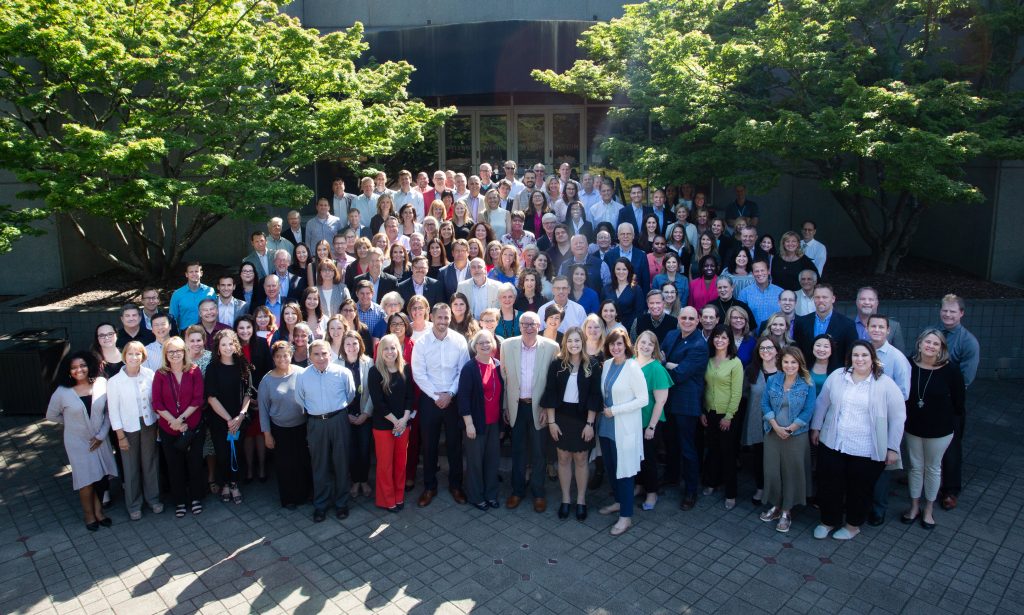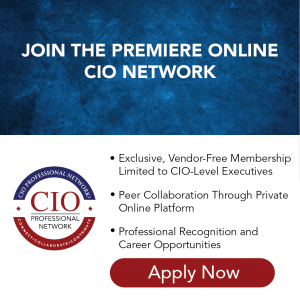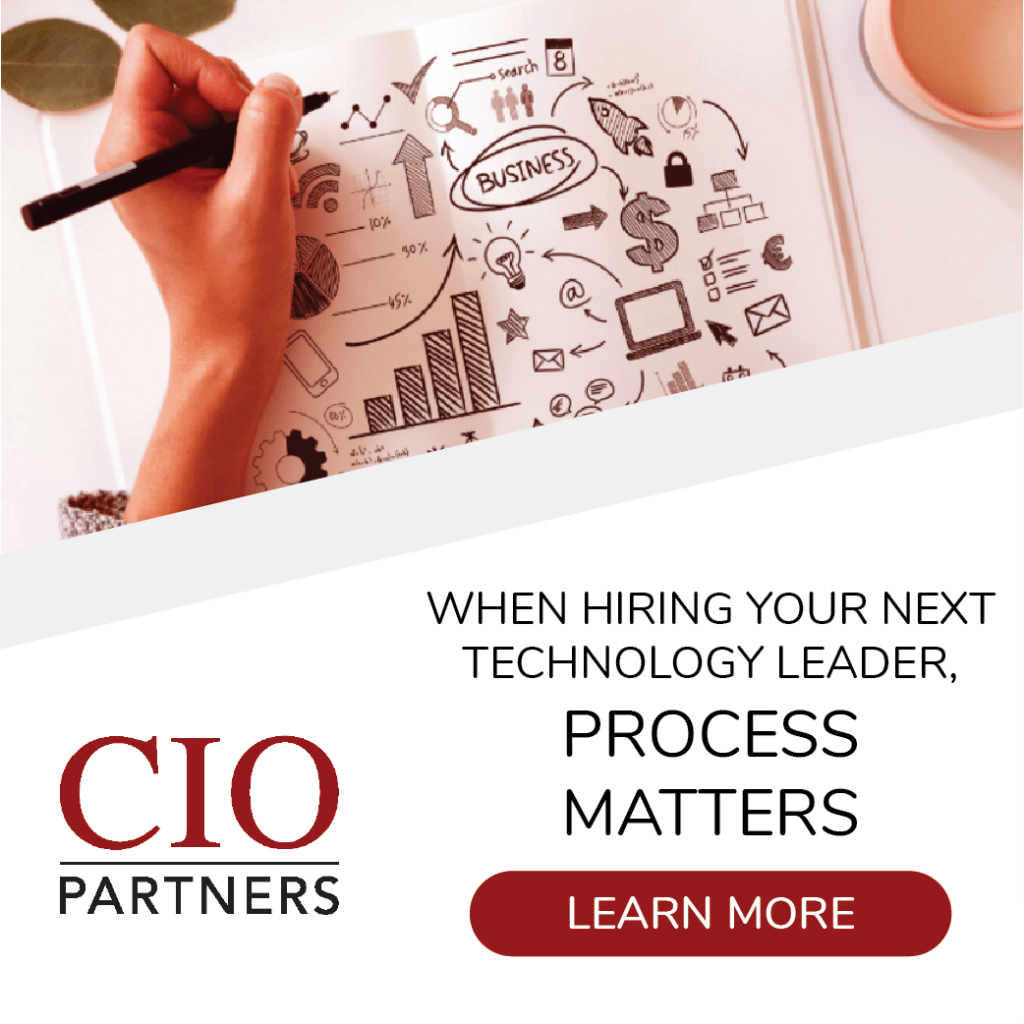Lisa McVey is the Chief Information Officer at the National Christian Foundation (NCF), a nonprofit ministry and grantmaking foundation headquartered in Alpharetta, Georgia that has, since 1982, mobilized more than $12 billion for 63,000 charities.
In this issue, Lisa discussed how her background in operations in areas such as project management, enterprise program management and sales led to her first CIO role – and eventually her current position. She also shared her thoughts on the need for today’s CIOs to be business focused and to solidly understand how technology can enable it.
Along with impactful words of advice for aspiring CIOs, Lisa also spoke to her interest in reading female authors who have shared their successes, failures and tough choices.
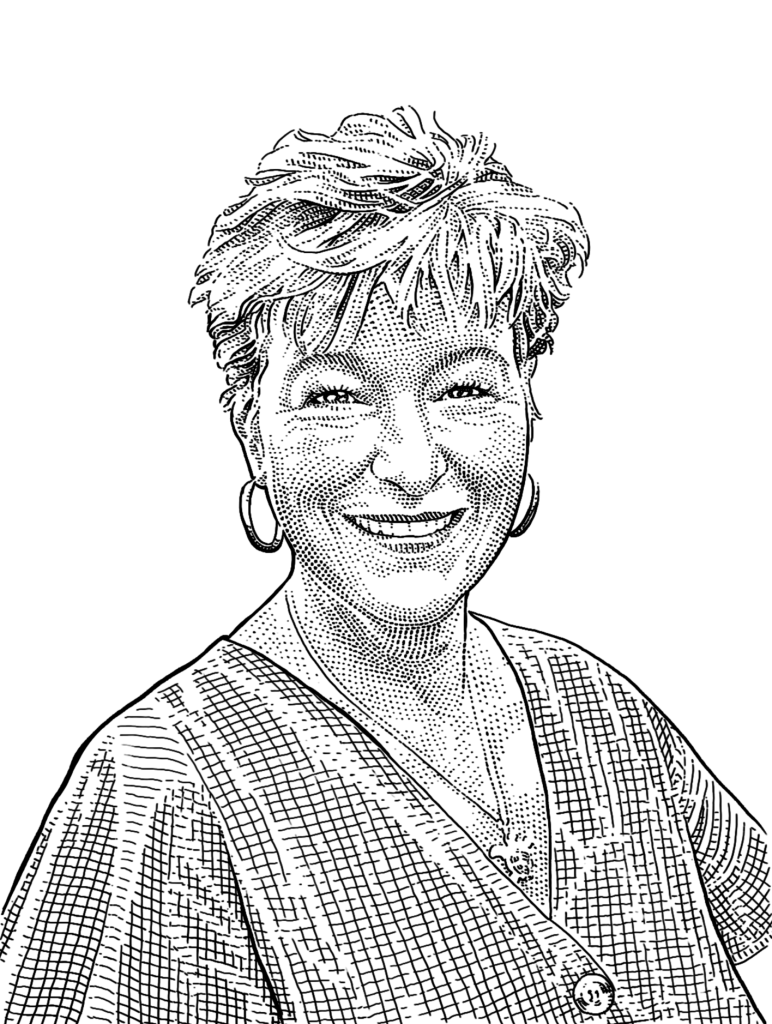
Walk us through your CIO path. How did you decide to pursue a career in technology, and how did you progress to your current organization?
I didn’t set out to pursue a career in technology. I was very operationally oriented, but my journey led me to technology and I’m certainly glad it did. I believe I’m one of those who know how to bridge business and technology well. I started off as a healthcare trainer for a large insurance company, which is what brought me to Atlanta. From there, I moved to an entrepreneurial startup company that wrote software for healthcare payer organizations. I ultimately helped them sell the company to their largest client up north before transitioning to McKesson.
I was at McKesson for 21 years and my first role was a senior project manager, working between the hospital systems and the product development organization. As we began acquiring companies, I saw an opportunity to look at enterprise program management, so I started an enterprise program management group. We acquired a large clinical practice, and I was asked to lead the implementation.
The CIO at the time wanted to put together an operational practice, and I became the director of operations in Six Sigma. I worked a lot on process improvements from quotes to cash and spent a lot of time on the sales, marketing and legal parts of the process. While doing that, the president of the technology division asked me to put together a single sales process. She presented that to the leader of the sales organization, and he said to me, “You’re in my business a lot; why don’t you report to me?” So from there, I took over sales operations. I did everything from sales process, forecasting revenue, budgeting and all the tools that supported them from the business perspective.
Later, I went into the IT organization and was there for about 18 months before I was promoted to the CIO role and stayed in that role for six years. After I left McKesson, I went to work for a startup healthcare company for about a year. Then, I got recruited to consult for a mid-sized law firm and ended up moving into a full-time role for a couple of years as their CIO. It was a totally different industry for me, which was fun.
When I left the law firm, NCF had originally been looking for a CTO. I found out through my relationship with CIO Partners and their process that NCF really needed a CIO. They needed somebody to come in, grow the organization and be a champion for the technology team. They needed someone to truly bridge the gap between products, services and processes – not only for internal customers, but for external givers. Through the recruiting process with CIO Partners, I was offered and accepted my current role at NCF.
Would you consider yourself a CIO, a CTO, or a hybrid? Why?
I’m a little bit of both – a hybrid. I say that because I’ve always had the responsibility to lead the technology enabling internal operations and technologies that were utilized externally. I’ve led lots of application development teams, and I’ve also led solution lifecycle programs that touched the end customer. Looking at all the roles that I have had, I have been involved in pieces and parts of user experience, connectivity, data, security, mobility, clouds, and architectures. I think NCF felt that I was a good fit because I had a combination of those skillsets and capabilities, even though I did not come up through programming.
I’ve seen the difference between a CTO and a CIO change over the course of time and organizations look at it very differently. It really depends on the reporting structure. Sometimes, CTOs report to the CIO, and in other cases, CIOs report to a CFO. In some organizations, the CIO has a strategic internal focus and the CTO is more outward.
What’s different about the CIO role today versus 10, 15, 20 years ago? Can you encapsulate that a little bit?
Today, I believe we are very business focused. We need to understand the business and how technology enables it. We need to understand the revenue streams, new growth strategies and new markets that we might want to enter. As CIOs, we take part in driving the business while wearing multiple hats.
I find that I’m not only talking IT. Instead, I’m talking business, operations, how to take care of the people, how to look at succession planning and how we can help open new doors to potentially monetize products and services. To be sure, we need to have solid relationships with leadership and stay ahead of the trends.
What initiatives have you overseen to date in your time with your organization? What’s on the horizon?
Technology transformation is key right now for all of our systems. We have implemented a brand-new corporate finance and accounting system, and we’ve done integrations with our expense management. At NCF, we have a national office, some local organizations and a lot of affiliates that are in local offices. We’re providing a centralized way to have a consistent brand, giving every local office the ability to serve their unique community but also giving a unique brand to NCF. We’re very proud to have been able to deploy that.
We have also launched an architectural and business governance committee. I’ve been able to bring the concept of enterprise architecture to NCF, and that’s working extremely well. We launched the business group to help gain insight on our affiliates, hearing about their experiences and their best practices. The rest of the transformation is going through into next year, which at that point, we will have implemented all new technology and dumped out all the old.
When I think about the transformation, I think about it at really high levels. We’re reducing risk in lots of different ways – enabling new technology, automating processes and providing additional efficiencies. For example, with the implementation of our new corporate accounting system, we had a couple people who were retiring naturally, and we didn’t have to backfill those positions because we created efficiency.
How do you foresee your organization being different in two years, and how do you see yourself shaping that change?
I was really impressed with the cybersecurity program when I came to NCF. Our security is considered managed, and I’m proud of that. Within under three weeks, we got the entire national office working remote, got them stable and continued our business operation. It was in that time that we deployed a new virtual credit network. We were able ensure single sign-on and multifactor for every single application, every single laptop and deployed laptops to people who needed them.
Since I joined, I helped to put together a multi-year roadmap for IT. I went out to each of my customers and said, “What do we need to do to support you?” From there, we created an agreed-upon multi-year roadmap. I think a lot of our transformation project is going to take us into the future because we’re already including mobility. We’re very fast-centric, so we don’t rely heavily on in-house, custom-developed applications.
Digital marketing and data analytics are going to be big players. We will be able to utilize data to connect more givers with their values, passions and interests. For me, the next step is really the data side of it. And from a technology perspective, I consistently keep ahead of the trends as we look through technology. We will continue to look for opportunities for NCF to grow.
Share your thoughts on the availability of IT talent. What strategies do you employ, and what’s different in your organization?
Finding IT talent is difficult especially when you are looking for specific skillsets. But as a Christian and nonprofit organization, it is even more difficult to find talent that aligns with our values and budget. We use job boards that align with our values and include our mission and our vision in every job description so people can say whether this is a fit for them not only with their personal values, but culture.
We want to make sure that we are known as a great employer and we are a great place to work. Even though our pay scale might be different, we have a lot of other perks that are just fabulous when it comes to total compensation. We also have a few strategic recruiting firms that align with our values, understand our culture, and apply their expertise to help us find candidates.
What advice would you give for someone who aspires to be a CIO?
I think it boils down to being relational. They need to know how to work not only across their peer group but with others, like the legal counsel, operating officers and CFOs. They need to know how to translate technology into business terms and values, and all of these require good relationships. They must also have that sense of the end customer, whether it’s internal or external. So, when we talk about staying ahead of trends, it’s not just technology trends. It’s the industry they’re in, the industry trends and what’s going on in the competitive landscape. They need to look at it holistically.
To learn these skills and the relational aspects involved, they need coaching and mentoring – observing someone who has those skillsets. If you give them the opportunity to get out of their comfort zone, mentor them and align them with somebody who has come up in that way successfully, those soft skills will be established. For example, I’m currently working with someone who runs network and infrastructure and one of his personal goals is to improve his public speaking. I am giving him an opportunity to present to the IT organization on how they accomplished getting us remote in less than three weeks. This is an opportunity to give huge recognition to the team and celebrate them, but I want him to step out of his comfort zone and reach across to different parts of the IT organization.
How do you decompress from the challenges of your current role? What do you do for fun?
I have always been able to have a work-life balance, because when it is time to shut down, I shut down. When I decompress, I spend a lot of time with my husband. We have three dogs and we love to be outside with them, taking walks and working in the yard. Church is also important to us, and my husband and I teach a small group on Wednesday nights.
I love listening to music and having Zoom calls with our kids because that’s the only way we can see them right now. I also enjoy golf, deep-sea fishing and going on vacations.
Who have been your biggest influences, and why?
My husband, Eric, is one of my biggest influences. He is very IT-centric and comes up from the data center and telecom space. When I was about to move into IT, I had a lot of learning to do, and he has been an incredible partner who was willing to help me learn. He was a huge influence for me in learning but also a big supporter and my biggest critic.
In the corporate world, Joan Tachon was a major influence. I reported directly to her early in my career, and at that time, I was in a project management role. I could not figure out why nobody saw that I was strategic because I felt like I was. During one of our discussions, she gave me the best advice. She said, “You just led this project. It was successful, on time and on budget, but I know that you had an individual on the team who was not doing their part, and what did you do? You stepped in and you did their job. You did not teach them anything. You just got the job done.” It was a shift in my mind, and it moved me from managing to really leading, early in my career.
Another huge influence was Randy Spratt. He was the CIO of the technology division at McKesson and was the one who asked me to start up the Operation Six Sigma group. Later, he was promoted to the corporate CIO, and I got the CIO promotion. In my first two years in the role, I attended his leadership team meetings. I would fly out to San Francisco two weeks out of every month. He was a mentor – an incredibly talented man, very business-centric a good communicator.
Currently, I mentor with the Pathbuilders organization, and that is always a huge influence for me because even though I am considered the mentor, I always learn. Every individual I work with is different, which is awesome. They bring certain circumstances that I have never dealt with that make me go, “Wow.” That is consistently an influence.
Which books would you most recommend that others read?
From a business perspective, the first book I would recommend is one of my favorites: The Learning of Love: A Journey Toward Servant Leadership by William Turner. My other recommendations are Dare: Straight Talk on Confidence, Courage, and Career for Women in Charge by Becky Blalock and Tough Choices by Carly Fiorina. I typically read a lot of books from women who have either been able to share their successes that I can learn from, or women who have shared their failures and tough choices.
From a faith standpoint, I would recommend Five Languages of Love by Gary Chapman and Knowing the Bible 101: A Guide to God’s Word in Plain Language by Bruce Bickel and Stan Jantz. We have a handful of Bible study books that we share, like Bible 101. A lot of people are just in the beginning of their faith journey and don’t know how to read the Bible, which can be complicated. We are trying to teach them how to do that.
If you weren’t doing the job that you have today, what would be your alternative dream job?
If I had my dream job, I’d own a big farm and work the fields, raise animals, and rescue Great Pyrenees. Frankly, it may still be something I do, but after retirement. My heart is with the Pyrenees.
What would you want the readers either to know about you or your perspective that perhaps we haven’t covered?
I want to make sure that what I want to be known for is what I’m known for. What I mean by that is I have vendor partners that used to call me “the people CIO.” I want to make sure people see me that way because I care about the people. I encourage people to really think about how they want to be known and make sure they are known that way.
The second thing is my mantra, “be calm.” It started way back at McKesson and it has continued to be my mantra. Be calm. Things change all the time and change is inevitable. Whether you are responsible for yourself, a team, a function, an organization – it doesn’t matter. Especially in technology, something is going to break, and if you run around like your hair is on fire, you’re not going to get the job done.
Lastly, I would say be a leader who is growing other leaders – the leader that people want to follow because they know that you care about their best interests and you are helping them be the best they can be every day.


